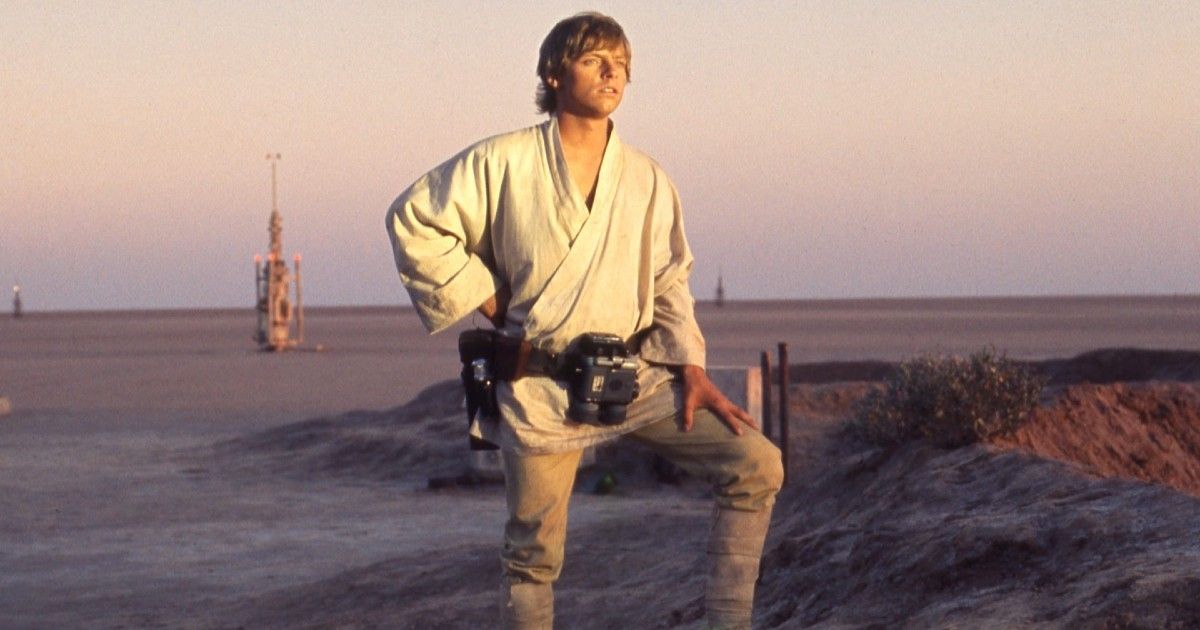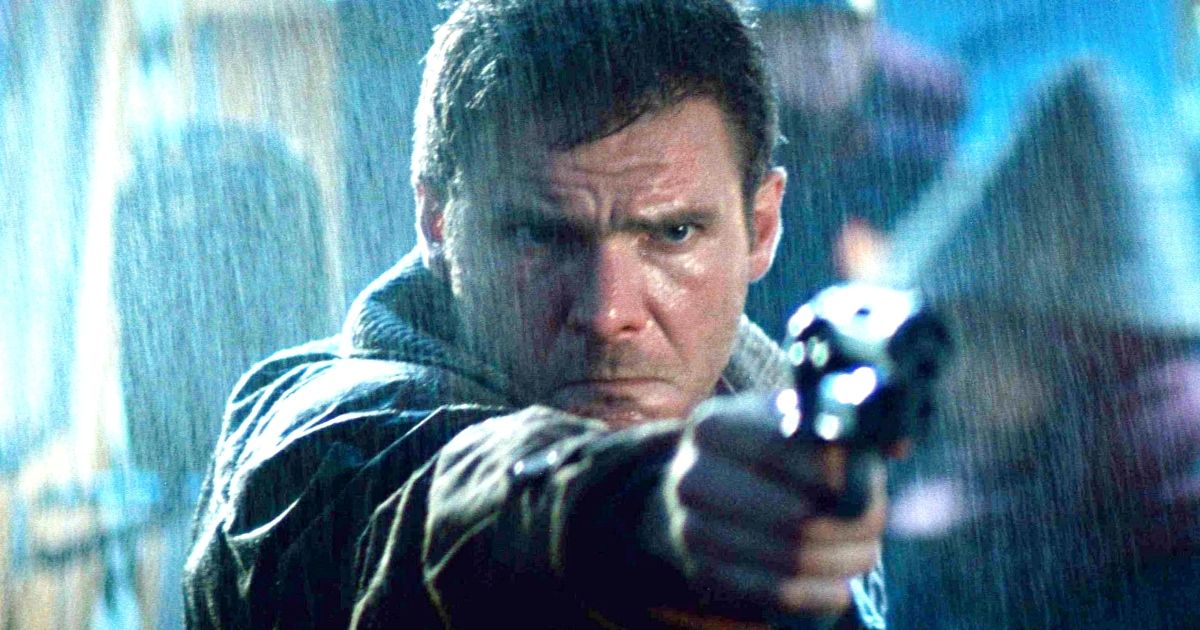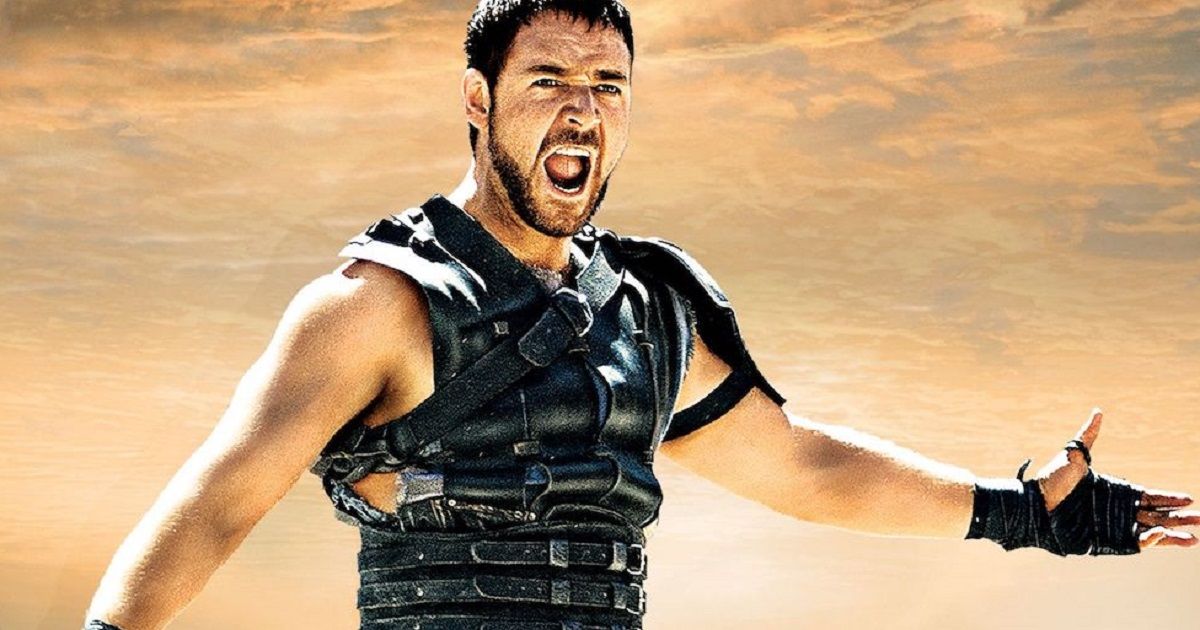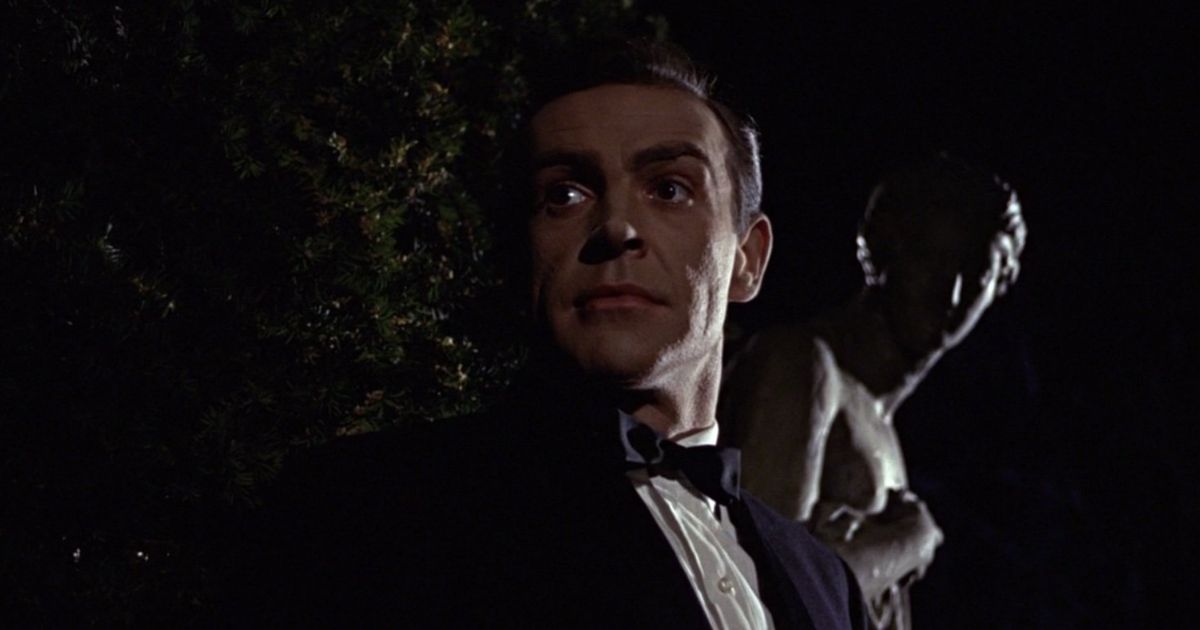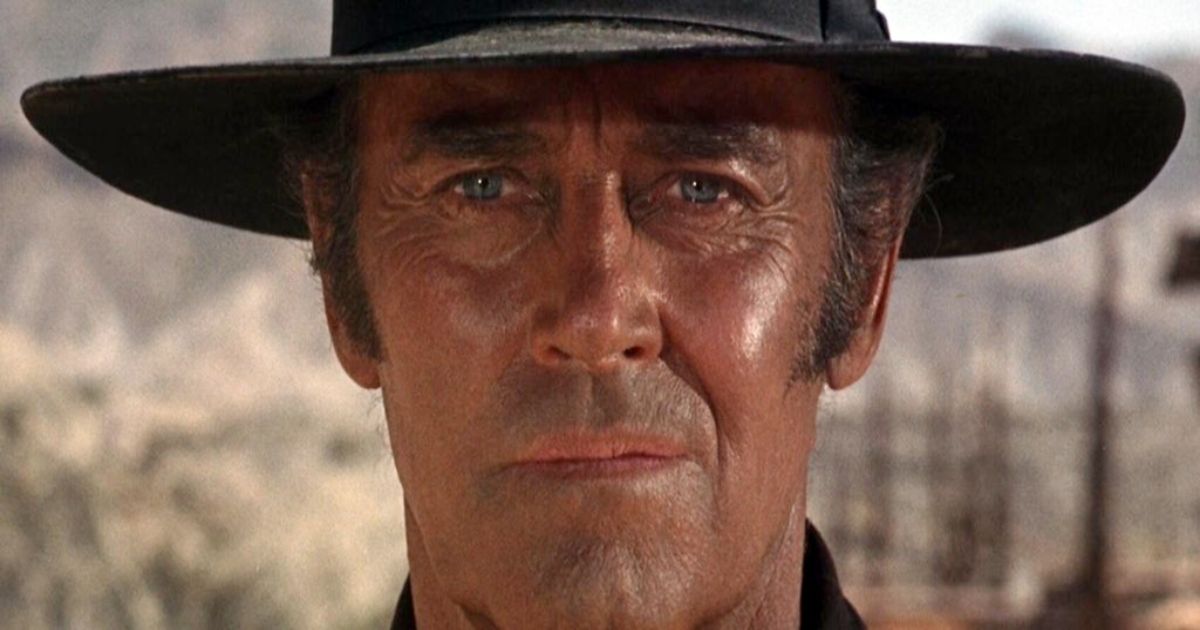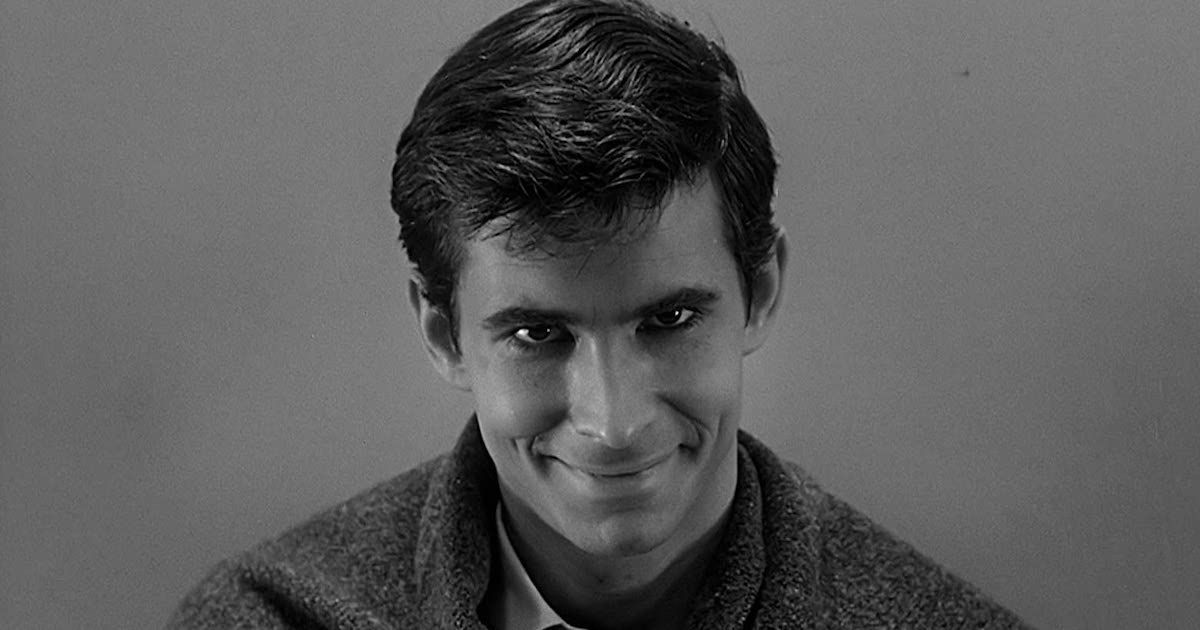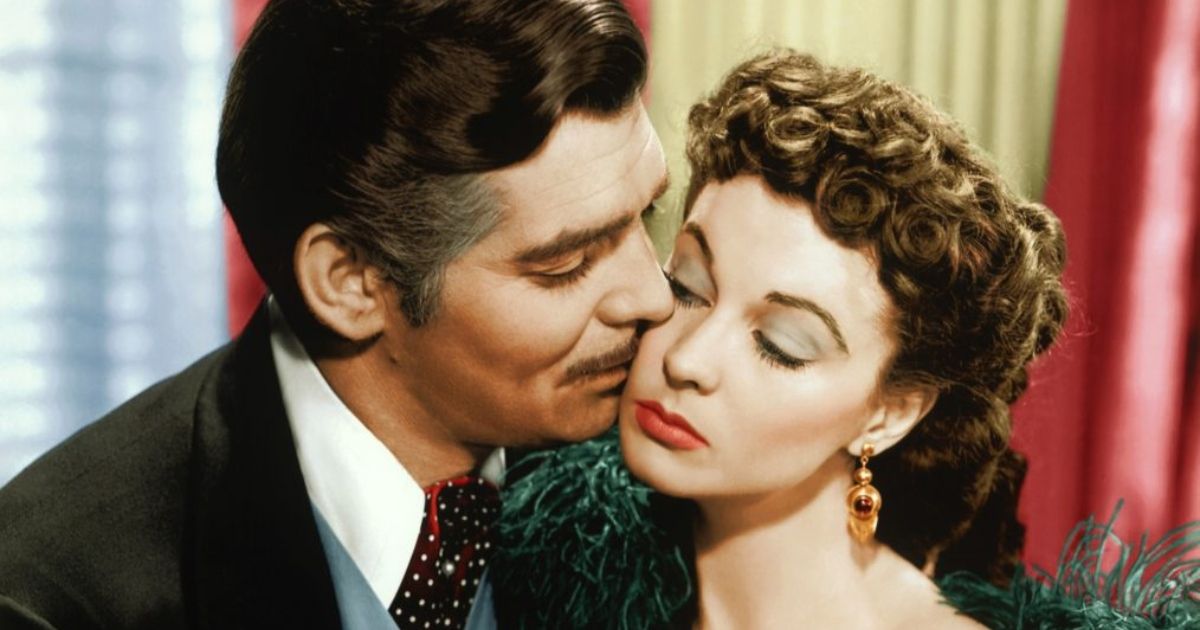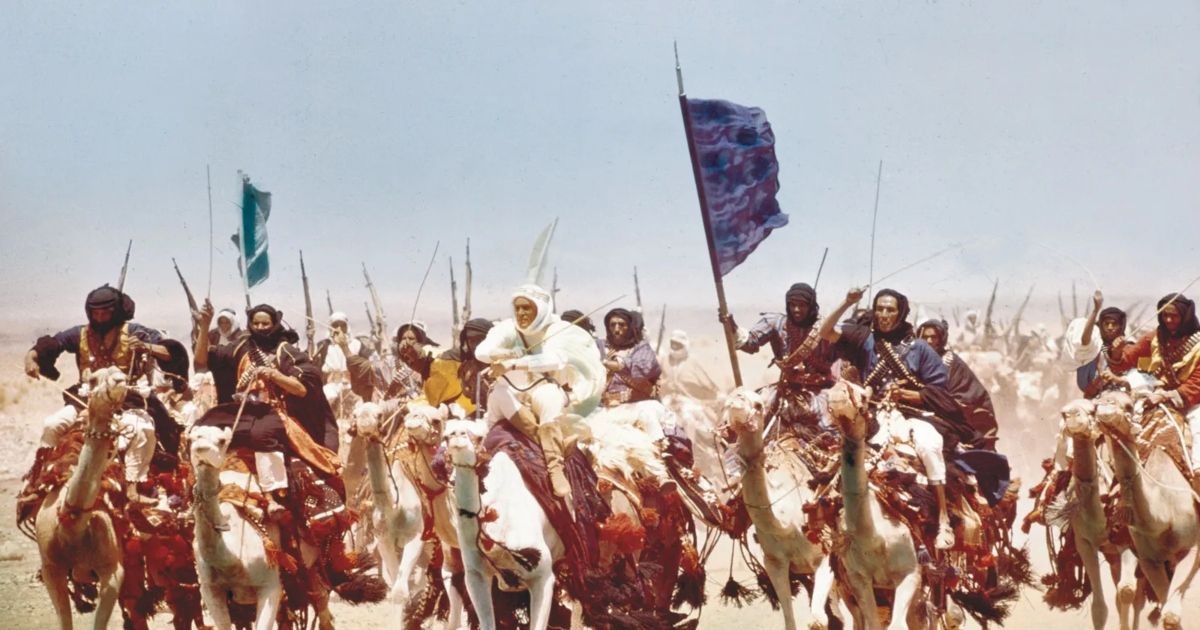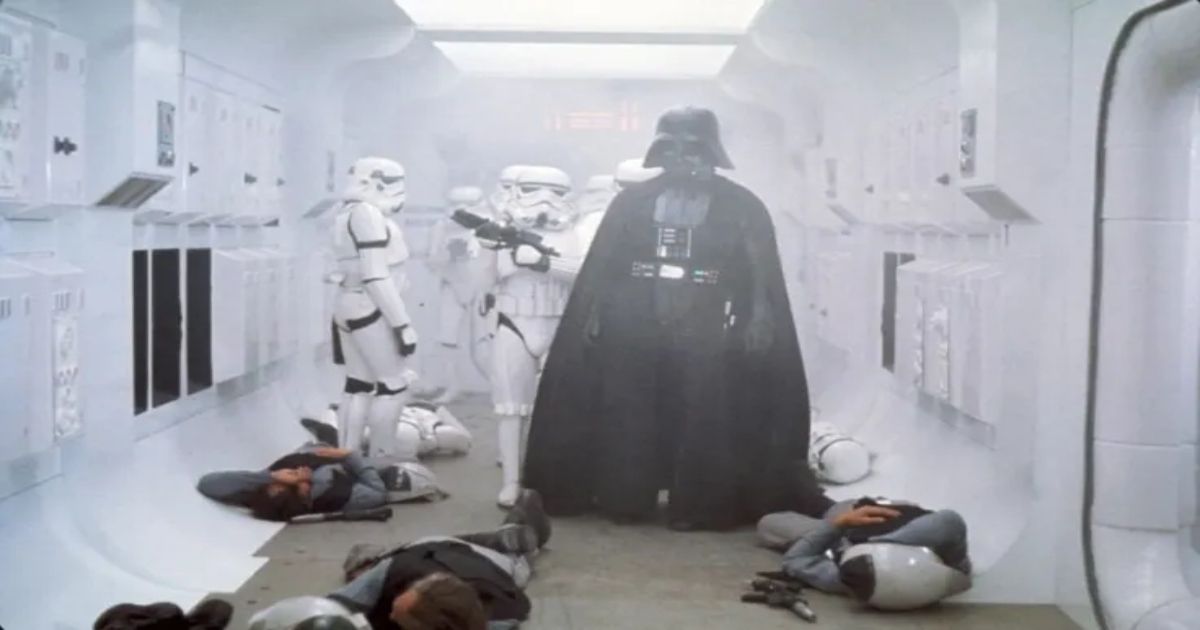The musical score of a film can be the difference-maker between a good film, or a bad one, a great one, or a classical epic worthy of every accolade. Film scores are used to communicate the grand scale of narratives, or the intricacies of the stakes involved. Many times, they're used to add a layer of characterization that augments the audience's experience with the story, and executes on the themes of the film that may not be possible with the visuals or the dialogue alone. In rare circumstances, the film score can become a vital part of the cinematic experience itself, transcending the visuals and storytelling to become an intrinsic mechanism of the movie making magic, and that is the exact qualification needed to make this short-list of the best film scores of all-time.
8 Blade Runner (1982)
What sets the film score of Blade Runner apart is an ambient soundscape that refuses to rely on a conventional orchestra, and instead focuses on an electronic synth wave style that augments the visuals of the film in a more subdued way. It's a non-traditional technique not often utilized in films that usually attempt to create music that can stand with, and sometimes overpower the profound visuals of films with the auditory experience. Produced by legendary Greek musical composer Vangelis, the sound of Blade Runner is nearly as iconic as the film itself, lending a melancholy weight to the apocalyptic vision of Los Angeles overburdened by crime, pollution, and the violent potential of a machine uprising. Additionally, its futuristic sound complements the film by anchoring audiences aurally in the world, creating a symbiotic relationship between the stark visuals, hellish post apocalyptic narratives, then contrasting them with a serene and tranquil auditory experience that should be experienced by faithful film lovers everywhere.
7 Gladiator (2000)
Composed by Hans Zimmer, the soundscape of Gladiator is a perfect blend of epic musicality that effectively renders the grandeur of the Roman Empire in the last gasp of its golden age, and the prestige of its greatest general, Maximus Decimus Meridius, with the more quiet moments of reflection that the film became known for. In Gladiator, the film score became instrumental in communicating the highest stakes of the great Roman battles with Germanic barbarian forces, then taking that same sense of scale and transforming the experience into one of the most profound cinematic experiences ever, as Maximus battled with the empire itself in the ancient Roman coliseum. While the score was perfect for grand storytelling, it was also used to highlight the more contemplative moments of the film, lending weight and resonance to Maximus' emotional and spiritual journey to Elysium. Interestingly, the soundtrack to Gladiator shares similarities to later Zimmer compositions, like the Pirates of the Caribbean franchise, which shared a heroic sense of scale.
6 Dr. No (1962)
The quintessential James Bond film, Dr. No serves as the very first Bond film, and began the legendary history of the franchise for decades to come. Composed by Monty Norman, the film score went on to become one of the most beloved musical compositions, perfectly encapsulating the high espionage, debonair style and intrigue that the Bond franchise would come to be known for. Starring Sean Connery, Dr. No would be the first of six official Bond films the movie star would be showcased in, and the film score has followed the Bond character through the decades, having been used in every production since. Norman, a prolific musician, was honored in 1989 to receive the Gold Badge of Merit for Services to British Music and the Ivor Novello Award for composing the James Bond Theme.
5 Once Upon a Time in the West (1968)
Perhaps the most impactful film of the Sergio Leone spaghetti western era, Once Upon a Time in the West mixed the brutal, vigilante violence customary of Sergio Leone's style, with an emotionally stirring soundtrack, most iconic for the mournful, operatic vocals of a woman seemingly crying out for all the spilled blood of the era. Produced by legendary Italian film composer, Ennio Morricone, Once Upon a Time in the West was an unforgettable film due to its tremendous score, and might've been disregarded as just another violent western picture, if not for the exalted soundscape that augmented the brutal re-imagining of the wild west. Ennio Morricone's sound would continue to define an entire generation of western films, especially the ones directed by Sergio Leone, becoming synonymous with the genre, and would even show up in later film eras, most notably, Quentin Tarantino's The Hateful Eight in 2015.
4 Psycho (1960)
The horrific, percussive strings used to great effect in Alfred Hitchcock's Psycho became one of the most memorable aspects of the film's dizzying terror. Composed by Bernard Herrmann, the musical score for Psycho was emblematic of Hitchcock's style, and not only defined an entire generation of horror films, but set the bar high for future horror pictures that would come to rely on their soundtracks to produce terrifying results. Herrmann was a gifted musician, founding his own orchestra at the age of twenty, and perhaps most iconically, scored the music for many of Orson Welles historic radio broadcasts, including The War of the Worlds in 1938. Perhaps recognized as one of the greatest film composers of all time, Herrmann's last film composition was Martin Scorsese's Taxi Driver in 1976, capping the end of a career that spanned decades. While Psycho would go on to be nominated for several Academy Awards, the film's score was not included. But, Herrmann had already taken home gold for All That Money Can Buy in 1941, winning over his own score for Citizen Kane of that same year.
3 Gone with the Wind (1939)
Universally recognized as one of the greatest films of all time, it's the musical score that truly catapults Gone with the Wind into rarefied cinematic territory. The film score is unique in this time period for the way the music was used to create context-specific moments throughout the film, instead of a more generalized soundtrack for mood only. Composed by Max Steiner, Gone with the Wind used a technique Steiner had already perfected in 1933's King Kong, by giving characters their own musical signatures, recurring themes, and custom melodic identities. Future film composers like John Williams would use similar leitmotifs to fashion their soundtracks into classical masterpieces, inspired by Steiner's technique to heighten thematic elements of film with character-themed musicality. Gone with the Wind would go on to win eight Academy Awards, and while Steiner was nominated for his film score, he did not win, although he would go on to win three Academy Awards for other film compositions during the course of his career.
2 Lawrence of Arabia (1962)
A cinematic masterpiece, Lawrence of Arabia may be the only film on this list with visuals that outdo the symphony, but would still be missing a piece of its greater whole without them. The gold swept dunes of Africa seem magical when paired with the inspired and miraculous score composed by French musician, Maurice Jarre. Based on the true story of highly decorated British officer T.E Lawrence in his colonial-inspired conquest of Arabia, the film score utilizes a full scale orchestra of horns, strings, and percussion to elevate the desert vistas into a transcendent realm of adventure and heroic escapism. Lawrence of Arabia would stand as Jarres' first film score to win an Academy Award, setting off a career that would see many more victories, most notably for Dr. Zhavago and A Passage to India, all three awards coming under the direction of David Lean.
1 Star Wars (1977)
While Star Wars became known for its unique style of fantasy, sci-fi myth, and epic narrative storytelling based on ancient archetypes, its ascension to rarefied cinema history begins with a legendary score, composed by John Williams. Many of the special effects and next generation technologies of the time were untested, and director George Lucas was unsure if the visuals could meet the lofty expectations that the film score inspired. Luckily, those fears were relieved when Star Wars hit theaters on May 25th, 1977, serving as the most iconic franchise in the history of film. Williams, already an established film composer by the time Star Wars hit theaters in 1977, became the go-to film composer for Hollywood blockbusters spanning decades to come, with his musical talents reaching all the way into modern franchises like Harry Potter, which utilize his iconic classical style. As a franchise, Star Wars, as scored by John Williams, has now spanned nearly five decades, and continues to inspire audiences around the world.

